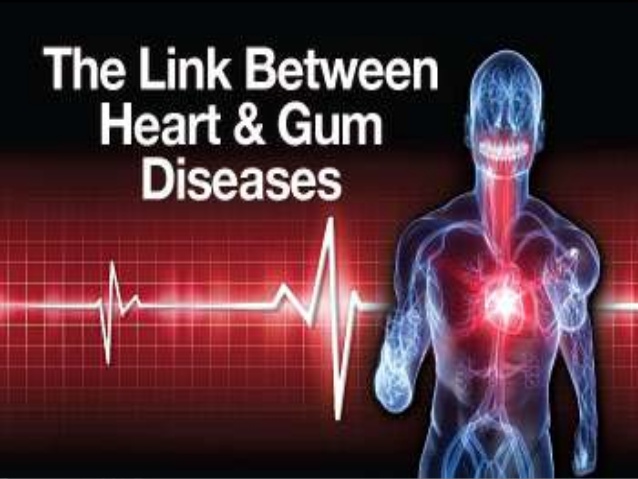
01 Nov Connection Between Gum Disease and Heart Problems
New studies have shown that patients of periodontal diseases have nearly twice the probability to have heart problems or stroke, and that those of them that have high cholesterol may be at even higher risk.
In our capacity as professionals in charge of your healthcare, it is our belief that intimating you on important health knowledge is a good way to help keep you disease-free. In this vein, we want to bring to your notice the fact that an increasing number of researchers are finding connections between gum diseases and dangerous health complications, including heart problems and stroke.
Generally speaking, the data suggests that persistent gum disease cause development of heart problems, the most lethal disease in the country.

The environment inside your mouth can be affected by gum disease, an infection caused by bacteria. One hypothesis is that bacteria from gum diseases can find its way to the bloodstream, subsequently attaching itself to fat deposits that are in the blood vessels of the heart. This, in turn, can lead to blood clots, and ultimately heart attacks.
How Exactly Does Gum Disease affect the Heart?
Experts speculate that bacteria are the likely connection between the two diseases in question. It is suspected that the bacteria in diseased gum tissue deplete the membrane between the connective tissue under the gum, and the gum, causing inflammation. Therefore, harmless activities like brushing and chewing could cause bacteria to reach the bloodstreams, and afterwards, move into the patient’s circulatory system. This, in turn triggers heart problems.
In essence, bacteria bring about an inflammatory tissue reaction that gives the bacteria access from the gum to the bloodstream. In layman terms, the patient’s gum bleeds, and the infection follows that path to the bloodstream. Once in the bloodstream, the bacteria can travel far in the body, reaching the heart. The effect of this is: the artery loses its elastic property and it shrinks internally. This then leads to the formation of small blood clots, and clogging of the arteries; next, the flow of blood is halted. What follows is either a stroke or a heart attack, dependent on where the blood clot is.
More research is being done to further uncover the role gum diseases play in the whole process. For now, however, here are some symptoms of gum disease:
- Bleeding gums during eating or brushing
- Increase in the space between teeth
- Inflammation or tenderness of the gum
- Overstretching of gums away from teeth
- Mouth sores
- Bad Breath
If you notice any of the above, meet a dental professional for a gum disease evaluation.
Let your dentist know if your any sort of heart complication, and let him know the medicine (if any) you are taking to treat it. Your health records will then be updated accordingly, and your dentist will be able to coordinate with your doctor on the best treatment plan for you.
You can find more details on gum disease and how it relates to heart complications here, www.perio.org, the American Academy of Periodontology website.
Some more information from the American Heart Association regarding heart problems/stroke can be found at www.americanheart.org.


